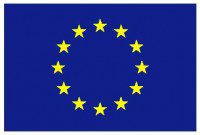Excursion TransParcNet meeting 2013, Maas-Swalm-Nette Nature Park (DE/NL) © Silke Weich
TransParcNet meeting 2013
Maas-Schwalm-Nette Nature Park (DE/NL)
„It is like a happy family reunion“, say the members of TransParcNet, EUROPARC’s network of cross-border protected areas, when they come together for their annual meeting. This year more than 30 people followed the invitation of the Nature Park Maas-Schwalm-Nette to meet in their protected area at the Dutch-German border. In a landscape of heath lands, rivers and bogs the participants discussed project ideas, reflected on cultural differences and learned about examples of climate change research and mitigation in their fellow parks.
With representatives of 15 European countries this meeting was again a very intercultural experience. Additionally the first workshop facilitated by Carla Seifert, expert in intercultural communication, allowed the participants to reflect on their own cultural habits and those of their colleagues. Dutch like to work in teams, Germans are well prepared, Scots are independent, Southern Europeans are not shy to be emotional…the list can go on and on. Two hours of exploring European manners showed the participants the strengths of cross-border communication but also urged them to respect the particularities of their foreign partners.
Before heading out to discover the Nature Park, a vox-pops session on climate change and mitigation and the affect on biodiversity management took place. Examples of research activities and projects from Germany, Finland, Norway, Russia, Italy and Slovenia were presented. These examples will also find entrance into a report by EUROPARC to the European Commission on the effects of climate change in protected areas. Later in the afternoon the group went out on a bus and hiking excursion to explore the National Park De Meinweg. The participants gained insight into the work of the Nature Park Maas-Schwalm-Nette, especially in the field of visitor management by exploring the new viewing tower and enjoying a cross-border hike on well maintained and marked paths. The cultural experience ended with dinner in a German restaurant associated through a gastronomic project of the Maas-Schwalm-Nette Nature Park which aims to link visitors to local businesses and herewith promote the culinary treasures of the region.
On the second day the participants had the chance to get creative and think about new projects for the TransParcNet. In the workshop facilitated by Carol Ritchie, the group developed transboundary project ideas in the fields of environmental education, recreation and tourism, communication and marketing, and nature conservation. The four ideas were handed over to the Transboundary Working Group who will now elaborate a project application that will take the TransParcNet forward. After the workshop session Juan Lloret had the pleasure to introduce Hainaut Cross-border Nature Park in France/Belgium as host of the TransParcNet 2014. Bringing the meeting to France is a great opportunity to give more visibility to the network in the west and south of Europe. It is a chance to invite and attract transboundary protected areas from France, Switzerland and Spain.
The meeting concluded with a bike excursion to the former ammunition depot Brüggen-Bracht, which after the retreat of British military got declared a protected area. After 40 km pedalling the flats of the Dutch-German border, the participants whiled away the summer evening exchanging experiences and making plans for next year’s TransParcNet meeting.
The comprehensive final report is available for download at the end of this page. Presentations of the meeting are accessible in the EUROPARC library. Pictures of the meeting can be found on facebook.
For more information, please contact us.
